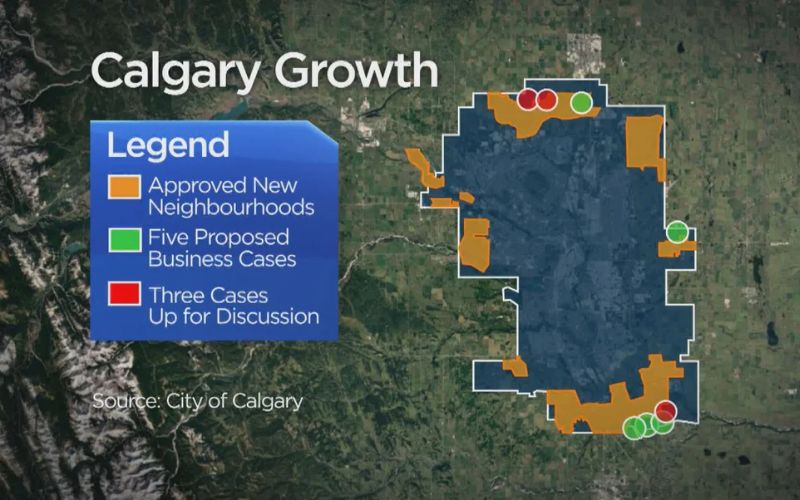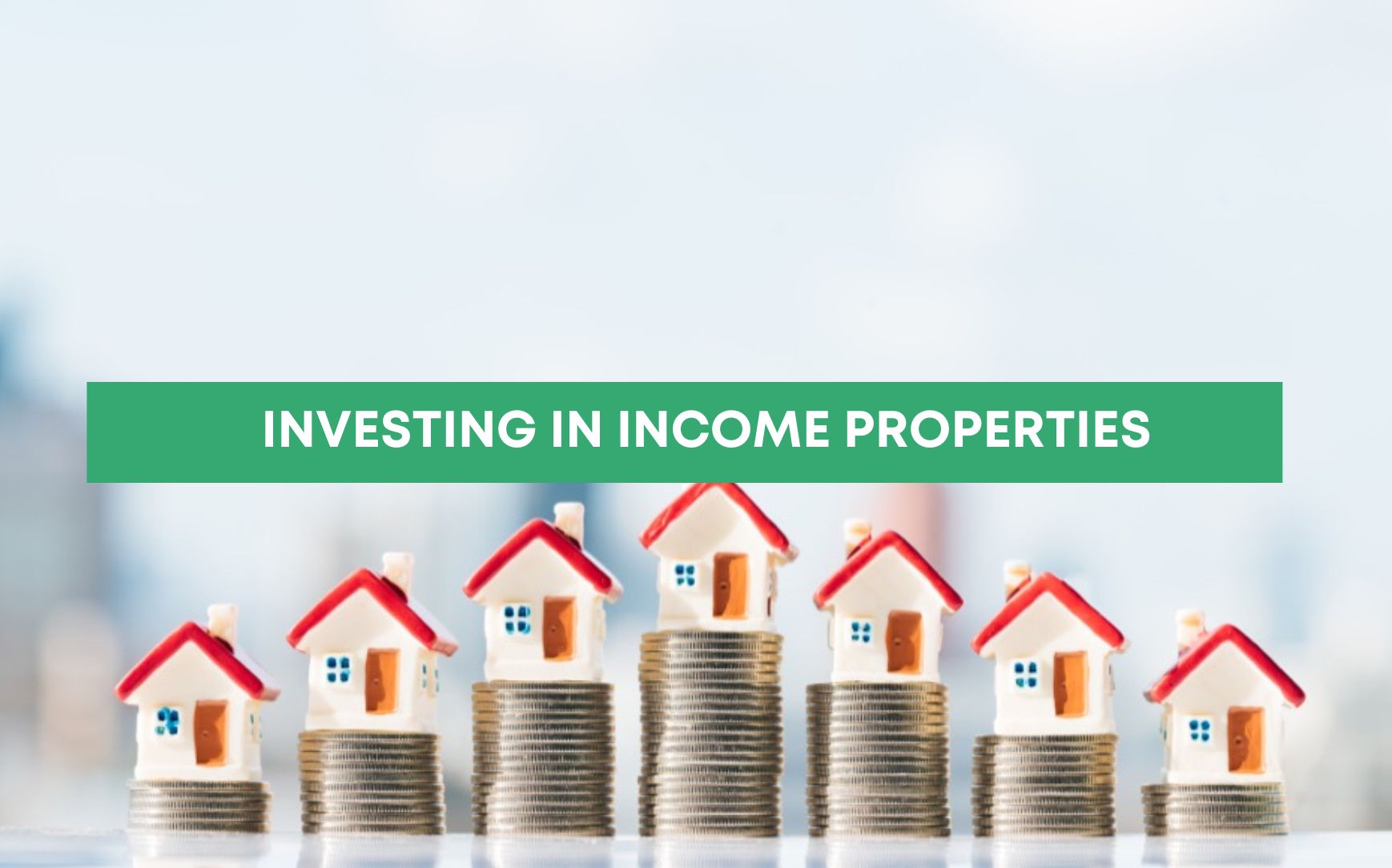Are you considering buying an income property as a real estate investment? It’s an exciting venture that can provide you with a steady rental income. However, before making any decisions, there are several factors you need to take into consideration. These factors will help you make an informed choice and ensure the success of your investment.
What is an Income Property?
Before deciding whether or not you should buy an income property, let’s start by defining what it actually is.
An income property is a real estate investment that is primarily purchased to generate revenue, either through rental income or future resale. This type of property can be broadly categorized into two types: residential and commercial.
- Residential Income Properties:These are properties like single-family homes, duplexes, triplexes, and small apartment buildings. An intriguing aspect of residential income properties is the flexibility they offer. For instance, an owner might choose to live in one unit while renting out the others, or opt to rent out all units to tenants. This approach not only provides a steady stream of rental income but can also lead to significant property value appreciation over time.
- Commercial Income Properties:This category includes properties such as office spaces, retail stores, warehouses, and larger apartment complexes. Unlike residential properties, these are typically leased to businesses or individuals for commercial purposes. The key allure of commercial income properties lies in their potential to yield higher rental income and, in some cases, longer lease terms, which can translate into more stable and long-term revenue streams.
In both cases, the primary allure of income properties lies in their dual potential: providing a regular source of rental income while also offering the opportunity for capital gains through increased property value over time. This makes them an attractive investment option for those looking to diversify their portfolio and secure a steady income flow.
Next, let’s dive into key considerations when buying an investment property.
1. Location of the Income Property

The location of a rental property is a critical factor that significantly influences its profitability and desirability. A prime location can ensure consistent rental demand, higher rent prices, and substantial long-term appreciation in property value. Key considerations for evaluating a location include:
- Proximity to Employment Centers:Properties near business hubs or areas with high employment rates are highly sought after, as they offer convenient commutes for tenants.
- Access to Public Transportation:Easy access to public transportation, like buses, trains, or subways, is a major draw, especially in urban areas where parking and traffic can be challenging.
- Quality of Local Schools:For residential properties, the quality of nearby schools is paramount, particularly for families with children. Properties in good school districts often command higher rents.
- Safety and Crime Rates:Areas with low crime rates are more attractive to tenants, ensuring a sense of safety and community wellbeing.
- Neighborhood Amenities:The availability of amenities such as parks, restaurants, shopping centers, and entertainment venues can make a location more desirable for potential renters.
- Future Development Plans:Awareness of any planned developments or infrastructure improvements in the area can be a sign of future growth, potentially increasing the property’s value.
Selecting a rental property in a location that aligns well with these factors can not only boost immediate rental income but also contribute to the long-term success of the investment.
2. Tenant Demographic
Understanding the tenant demographic is crucial for making your property more appealing and minimizing vacancy rates. Different properties attract different types of tenants, and knowing what your target demographic needs and prefers can guide you in tailoring your property to meet these specific requirements.
- Location-Based Tenant Needs:For example, properties near universities are likely to attract students. In such cases, offering flexible leasing options and furnishing the units can significantly increase their appeal. On the other hand, properties in family-oriented neighborhoods should focus on features like additional bedrooms, outdoor spaces, and proximity to schools.
- Demographic-Specific Features:Catering to the lifestyle and needs of your tenants is key. Young professionals might value modern amenities like smart home features and high-speed internet connectivity, while families might look for safety features, ample storage space, and a kid-friendly environment.
3. Evaluating Cashflow
Evaluating the cash flow of a rental property is a critical step in assessing its viability as a profitable investment. The fundamental goal is to ensure that the rental income generated from the property not only covers all your expenses but also leaves room for profit. This evaluation involves a detailed analysis of various financial factors.
- Income vs. Expenses:Consider the potential rental income against all associated expenses, including mortgage payments, property taxes, insurance, maintenance, and any property management fees. It’s essential to have a clear understanding of these figures to determine if the property can generate positive cash flow.
- Contingency Funds:Factor in contingency funds for unexpected repairs or vacancies. A profitable property should be able to absorb these occasional setbacks without affecting your overall financial stability.
- Long-term Profitability:Look beyond immediate cash flow and consider the long-term profitability of the property. This includes potential appreciation, tax benefits, and the possibility of increasing rents over time.
By thoroughly evaluating the cash flow, you ensure that your investment is not only sustainable in the short term but also profitable in the long run. A property that meets these criteria can provide a stable and growing source of income, making it a valuable addition to your investment portfolio.
4. Choose the Right Neighborhood
When it comes to buying an income property, the neighborhood plays a pivotal role in attracting tenants and impacting the vacancy rate. Consider the property location carefully to ensure that it aligns with your target tenant demographic and investment goals.
For instance, purchasing a property near a university might be a lucrative choice as it can attract student tenants. However, it’s important to note that the summer months may experience higher vacancy rates as students tend to leave during break. To mitigate this, you can explore alternative tenant markets or consider short-term rental options.
Furthermore, keep in mind that some towns enforce fees and regulations to discourage rental conversions. These measures aim to maintain the neighborhood’s character and prevent an overabundance of rental properties. Ensure you thoroughly research the local regulations and potential limitations before finalizing your investment decision.
“The neighborhood you choose can greatly impact the success of your income property investment. By selecting an area that appeals to your desired tenant market and understanding any local rental regulations, you can optimize your property’s performance and minimize vacancy rates.”
– Mark Smith, Real Estate Professional
Based on recent evaluations, the top three neighborhoods in Calgary for investing in an income property in 2023 are:
- Mahogany:Recognized for its family-friendly atmosphere, Mahogany boasts a 63-acre freshwater lake and is known for its appealing amenities and community spirit. It’s also highlighted for its affordability and lifestyle offerings.
- Arbour Lake:Located in the northwest, Arbour Lake offers a unique lakeside living experience. It’s appreciated for its robust community connections and water-based activities, making it an attractive choice for families.
- Tuscany:Also in the northwest, Tuscany is known for its family-oriented environment, white picket fences, and a strong sense of community, making it an ideal neighborhood for families.
These neighborhoods stand out for their combination of family-friendly amenities, community engagement, and potential for property value appreciation, making them attractive options for income property investments.
Also, check out our list of the safest communities in Calgary which can also play a key role when deciding on your income property location:
Safest Communities in Calgary.
5. Future Development and Average Rents

In today’s ever-changing real estate market, it’s important to consider the future development of the area when buying an income property. A neighborhood experiencing significant growth and development can greatly impact the value and demand for your property.
When evaluating future development, you should assess whether there is a high volume of construction projects taking place or if there are plans for additional housing in the area. These factors can potentially increase the competition and affect the rental income and occupancy rates of your property.
Researching the average rents in the area is another crucial step in determining the potential rental income of your property. By analyzing the market trends and comparing the average rents of similar properties, you can ensure that your rental income will be sufficient to cover expenses and generate a healthy cash flow.
6. Property Taxes and Nearby Schools
When considering a rental property investment, it is crucial to take into account the property taxes and the quality of local schools. These factors can significantly impact the value of your investment and the potential rental income.
High property taxes may be acceptable if the neighborhood attracts long-term tenants and offers other desirable amenities. However, it is essential to carefully evaluate whether the rental income generated can cover these higher taxes and still provide a positive cash flow.
Moreover, the quality of nearby schools plays a critical role in attracting tenants, especially families with children. Good schools can enhance the desirability of your rental property and increase its value. Conversely, if there are no reputable schools in the vicinity, it may be challenging to attract tenants and maximize your rental income potential.
It’s crucial to thoroughly research and analyze the property taxes and school quality in the area where you plan to invest. By considering these factors, you can make an informed decision that aligns with your investment goals and maximizes the value of your rental property.
7. Job Market and Amenities
When considering buying an income property, it is essential to evaluate the job market and amenities in the surrounding area. These factors have a significant impact on rental property demand and value.
The job market plays a crucial role in attracting tenants to a particular location. Areas with growing employment opportunities tend to have a higher rental property demand. The presence of stable industries, job growth, and a diverse range of employment options make an area more appealing to potential tenants.
Additionally, amenities greatly influence the desirability of rental properties. Having convenient access to parks, restaurants, gyms, and public transportation can make a neighborhood more attractive to tenants. People are more likely to choose a rental property that offers a convenient and enjoyable lifestyle.
By investing in an income property located in an area with a strong job market and desirable amenities, you increase your chances of attracting reliable tenants and achieving higher rental property value.
8. Track Listings and Vacancies in the Area
Additionally, understanding the listings and vacancies in the area can provide valuable insights into the rental market and help you make informed decisions. By keeping track of the availability of rental properties and the length of time they stay on the market, you can gauge the level of demand and adjust your rental strategies accordingly.
Remember, investing in an income property is a long-term commitment, and considering future development, average rents, listings, and vacancies can significantly impact your success as a rental property owner. Stay informed, analyze the data, and make well-informed decisions based on a comprehensive understanding of the market.
| Factors to Consider | Importance |
|---|---|
| Future Development | High |
| Average Rents | High |
| Listings and Vacancies | Moderate |
9. Consider the Potential for Renovations

Renovations play a pivotal role in enhancing the value and appeal of an income property. When you consider a property for investment, evaluating its potential for renovations is key. Strategic updates can not only boost the property’s value but also make it more attractive to potential tenants.
- High-Impact Areas:Focus on areas like kitchens and bathrooms. Updating these spaces can significantly improve the overall appeal of the property. They’re often the first areas potential tenants look at and can make a big difference in their decision-making.
- Cost vs. Return:Balance the cost of renovations against the potential increase in property value and rental income. Sometimes, even simple cosmetic changes like a fresh coat of paint, new fixtures, or basic landscaping can greatly enhance the property’s appeal without a hefty investment.
- Time and Resources:Consider the time and resources needed, especially for more extensive renovations. Align these projects with your investment timeline and goals. Quick fixes might be more suitable if you’re looking to rent out the property soon, while more extensive remodels can be planned if you have a longer time frame.
Remember, well-thought-out renovations can transform a property, making it not only more desirable for tenants but also more profitable for you as the owner. It’s about making smart choices that align with your investment strategy and market demands.
10. Deciding BetweenPreconstruction vs. Resale Properties in Alberta
When it comes to real estate investment in Alberta, one of the key decisions is choosing between preconstruction and resale properties. Each option has its unique set of benefits tailored to different investment strategies.
Preconstruction Properties: Preconstruction income properties are real estate investments in properties that are yet to be built or are in the process of being constructed, offering investors an opportunity to buy into a project at an early stage, often at a lower price compared to finished properties.
Here are some things to consider with pre construction homes:
- Future Growth: Investing in a property before it’s built lets you lock in current market prices, with the potential for appreciation as Alberta’s market grows.
- Customization: Tailor features to meet modern demands, a significant plus in Alberta’s diverse housing landscape.
- Risks to Consider: Be aware of potential construction delays and market shifts, particularly relevant in Alberta’s economy which can be influenced by industries like oil and gas.
Resale Properties: Resale income properties are existing real estate investments that are purchased from a previous owner, offering immediate potential for rental income and the advantage of assessing the property’s condition and location firsthand.
Here are some things to consider when buying a resale home:
- Immediate Income: These properties can start generating rental income right away – a big advantage in Alberta’s established neighborhoods.
- Tangible Assessment: You get to inspect and gauge the property firsthand, an important factor in areas where older buildings may need more upkeep due to weather conditions.
- Market Insight: Resale properties offer a clearer picture of the neighborhood dynamics and historical trends, crucial in Alberta’s fluctuating market.
Making the Choice:
The decision boils down to your investment goals and timeline. Preconstruction might appeal to those eyeing long-term growth and modernization in burgeoning areas. Meanwhile, resale properties are ideal for investors looking for immediate returns and a more predictable venture in stable neighborhoods.
10 Factors to Consider when Buying an Investment Property
Buying an income property is a wise real estate investment that can provide you with the opportunity to achieve rental property ownership and generate a steady stream of income. However, to ensure success in this venture, it is crucial to consider various factors in the decision-making process.
One of the most important factors is the property location. Choosing a neighborhood that aligns with your target tenant demographic and has a low vacancy rate is essential. Additionally, evaluating property taxes and the quality of local schools is crucial as they can impact the value of your investment and potential rental income.
Furthermore, the job market and nearby amenities play a significant role in determining the demand and value of your rental property. A location with a thriving job market and attractive amenities will attract more tenants and potentially increase your rental income. Additionally, researching future developments in the area and assessing average rents will help you make informed investment decisions.
By thoroughly researching and analyzing these factors, you can make sound investment choices and set yourself up for a successful venture in rental property ownership. So, take the time to evaluate each factor carefully, consult with professionals in the field, and embark on the journey of buying an income property with confidence.
Frequently Asked Questions
What factors should I consider when buying an income property?
When buying an income property, you should consider factors such as the property location, property taxes, rental income, tenant considerations, cash flow, vacancy rates, and the potential for renovation.
How does the neighborhood affect my income property?
The neighborhood in which you buy an income property is crucial as it will attract a certain type of tenant and affect your vacancy rate. Factors such as proximity to universities or the availability of amenities can greatly impact the demand for your rental property.
How do property taxes and schools impact my income property investment?
High property taxes may be acceptable if the neighborhood attracts long-term tenants. However, if there are no good schools nearby, it can affect the value of your investment and potential rental income.
How does the job market and amenities in the area affect my income property?
Locations with growing employment opportunities tend to attract more tenants. Additionally, amenities such as parks, restaurants, gyms, and public transportation can greatly influence the demand and value of rental properties.
Should I consider future development and average rents when buying an income property?
Future development in the area and average rents are important factors to consider. Researching the average rents in the area will help you determine if the rental income can cover your expenses, while future development can have a significant impact on the value and demand for your income property.
What are the key factors to consider when buying an income property?
The key factors to consider when buying an income property include the property location, property taxes, rental income, tenant considerations, cash flow, vacancy rates, potential for renovation, job market and amenities in the area, as well as future development and average rents.
How important is the property location when investing in rental real estate?
Property location is crucial when investing in rental real estate as it can significantly impact rental income, property appreciation, tenant demand, and overall investment success.
What role does property management play in investment rental properties?
Property management is vital for investment rental properties as it involves tasks such as tenant screening, property maintenance, rent collection, lease agreements, and overall oversight to ensure the property generates rental income and is well-maintained.
How does the rental income factor into the decision of buying an investment rental property?
Rental income is a key consideration when buying an investment rental property, as it directly impacts the property’s cash flow and overall return on investment.
What are the different mortgage options to consider when purchasing an investment rental property?
When buying an investment rental property, it’s important to explore mortgage options such as fixed-rate mortgages, adjustable-rate mortgages, and investment property loans to determine the most suitable financing for the investment.
What is an exit strategy in the context of buying an investment rental property?
An exit strategy refers to the plan or approach for selling or disposing of the investment rental property in the future, taking into account factors such as market conditions, investment objectives, and potential returns.
How can one determine if buying an investment rental property is a suitable investment decision?
One can determine the suitability of buying an investment rental property by evaluating factors such as market analysis, property cash flow projections, potential risks, long-term investment goals, and alignment with personal financial objectives.
What are the advantages of hiring a property management service for an investment rental property?
Hiring a property management service can offer benefits such as efficient property maintenance, tenant management, rent collection, legal compliance, and overall support in managing the property effectively.
What role do market trends play in the decision to buy an investment rental property?
Market trends play a crucial role in the decision to buy an investment rental property as they provide insights into factors such as property appreciation potential, rental demand, market stability, and overall investment prospects.
Why is it important to consider the condition of the property when buying an investment rental property?
Considering the condition of the property is essential when buying an investment rental property as it impacts maintenance costs, tenant satisfaction, property value, and the overall success of the investment.




